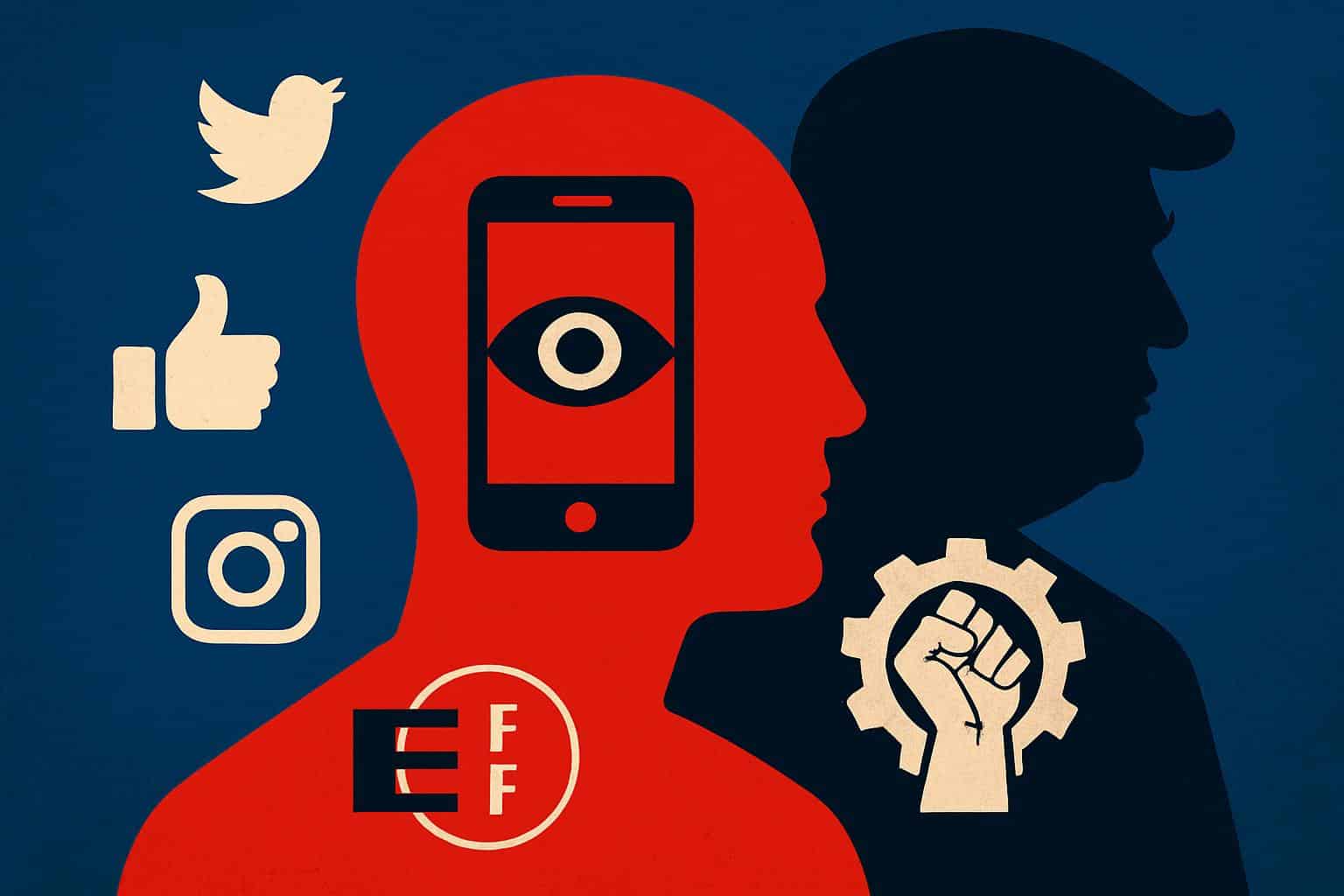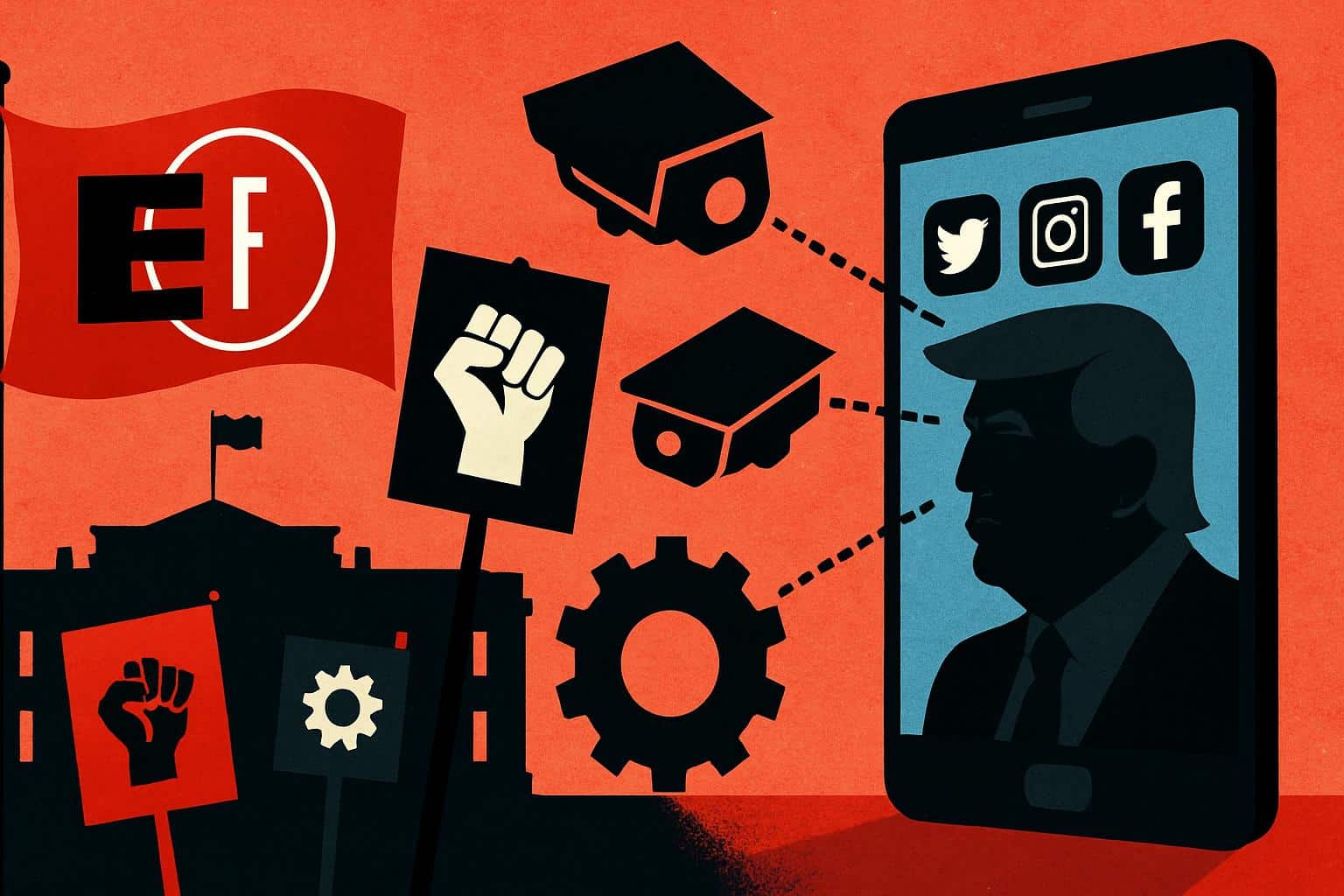The lawsuit contends that the Trump administration engaged in an unlawful and unconstitutional surveillance program of social media activity fully covered by the Constitution’s freedom of speech protections against foreign nationals lawfully residing in the United States. The lawsuit, filed in the Southern District of New York on behalf of unions representing auto workers, teachers and communications workers, alleges that federal agencies are relying on tools driven by algorithms that scan posts and punish noncitizens for viewpoints the government doesn’t like.
What the lawsuit alleges about social media monitoring
The government tracks social media activity of virtually all noncitizens with valid visas and many lawful permanent residents, according to the filing. The suit says that officials flag posts that are critical of the U.S. government or culture, express pro-Palestinian views and support for campus protests and Charlie Kirk’s death on behalf of the conservative activist in ways authorities find to be objectionable. Just a few months back, the EFF said that flagged people might be subject to actions like having their visa revoked or being detained in relation to immigration and pointed to a thread on X from the State Department discussing canceling visas for online speech.
- What the lawsuit alleges about social media monitoring
- How the program reportedly works, according to the suit
- Free speech rights for noncitizens living in the U.S.
- Labor unions join the fight against alleged surveillance
- A History Of Social Media Vetting And Its Limits
- What to watch next in the closely watched court case

At the heart of it is an allegation of unconstitutional viewpoint discrimination: that federal agencies are not weeding out security threats, but punishing protected speech. The plaintiffs say the practice has a chilling effect on union participation, activism on campus and everyday online conversation by people living, studying and working in the U.S. lawfully.
How the program reportedly works, according to the suit
The complaint describes a system that couples huge amounts of data collection with automated analysis and uses AI to sift through posts for language, sentiment and “risk.” While the lawsuit’s details are redacted in places, it fits into a yearslong pattern of government social media screening for immigration and national security programs. The State Department started gathering social media identifiers from nearly all visa applicants in 2019, affecting millions of people a year, according to public notices and later court filings by civil liberties groups.
Government watchdog audits have repeatedly cast doubts on the effectiveness and oversight of such screening. The Government Accountability Office said in 2021 that several Department of Homeland Security components employed social media “without consistently having outcome metrics, documented guidance or standardized training.” And the department’s inspector general has warned about benefits, accuracy and privacy protections. The EFF’s lawsuit argues that aside from any imperfections in predictive “risk scoring,” such a technique is constitutionally untenable if it results in the punishment of protected speech.
Free speech rights for noncitizens living in the U.S.
The rights of the First Amendment are not limited to citizens inside this territory. For decades, courts across the country have held that public schools, public employees and even noncitizens may not be censored or punished for their viewpoints. At the same time, immigration law gives the executive wide latitude at the border and consular discretion abroad — a tension that has long characterized litigation in this area.
The plaintiffs argue the government crossed a bright constitutional line when it monitored and punished domestic speech, like posts in support of campus protests. They also say the system violates the rights of union members and organizers who depend on free, open online debate to mobilize, negotiate and advocate — particularly in industries with a large immigrant workforce or international students.

Labor unions join the fight against alleged surveillance
Auto workers, teachers and communications workers unions all signed on to the case to emphasize its expansive reach.
- Teachers who engage with students who are active on social media and could be deported for speech
- Communication workers, who use a lot of organizing tools online to advocate in advanced ways
- The auto sector, which is thousands upon thousands of engineers and technicians on work visas here
Members have become more circumspect in their online activity, with fears that criticism of government policy, or even just defending colleagues, could result in punishment, the suit says.
A History Of Social Media Vetting And Its Limits
Since 2015, federal agencies have tested and expanded social media checks to address security concerns. Yet public records and reports from oversight bodies such as the GAO, along with civil society groups like the Brennan Center and the A.C.L.U., often stress that there’s weak evidence to show that such screening is predictive of risk — and considerable potential for false positives and bias. Predictive models that scour millions of online messages for negative words and phrases, scanning for “bad apples” among them, risk misreading contextual irony or multilingual postings — mistakes that only become more dangerous when the stakes are nothing less than detention or deportation.
The EFF’s complaint uses that track record to say broad, AI-enabled surveillance of lawful residents is both ineffective and illegal when trained on viewpoint. The lawsuit seeks to stop the programs and win court declarations that monitoring employees in these ways, and retaliating against them for their online speech, violates constitutional rights.
What to watch next in the closely watched court case
The case will probably hinge first on requests for interim relief — whether a judge blocks, or doesn’t block, the alleged practices while litigation continues. The government can be expected to invoke national security interests, border and visa authorities and the desire to tamp down incitement or threats. The plaintiffs will argue that the program constitutes a dragnet aimed at protected speech, with scant evidence of return and extreme costs to millions of foreign students, workers and green card holders who reside in the United States under its law.
Amicus briefs from civil liberties and immigration law experts are likely, as is congressional oversight of the program’s legal foundation and track record. Whichever way the court decides, the lawsuit tees up a critical test of how far tools like social media surveillance may be used in a country where constitutional speech protections extend to everyone, not just citizens.

